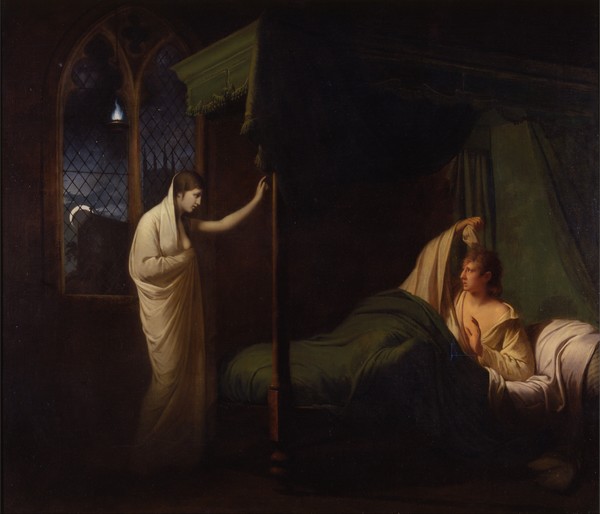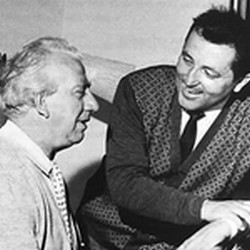
I have my baggage at the doorstep, but I can't go on holiday without writing a few lines to remember Fritz Wunderlich, this week marks 53 years since his death; there are traditions I like to maintain. I've chosen one of Haydn's Scottish songs that the tenor made a record, my favourite: William and Margaret, Hob. XXVI: 153. Or, in the German version that we're listening, Es weiden meine Schafe.
I told briefly a few months ago the origin of these scores when talking about one of these Beethoven's songs, and even before, five years ago, when we heard another one by Haydn: they are arrangements of traditional British songs that some publishers commissioned to several composers. Among the many that Haydn wrote, there are seven recorded by Wunderlich; He sang them in a concert at the ORF studios in 1963. The German versions that the tenor sang were arranged by musicologist Bernhard Engelke during the first years of the 20th century; He replaced the English poems with poems included in Der kleine Rosengarten, by Hermann Löns, a recent and well-known collection at the time. The new texts respected the traditional spirit of the originals, although, as we saw with Rose Rot, Rose weiß, the subject of the song was not always respected.
The German story of Es weiden meine Schafe is related to the English story, an old ballad written by the 18th-century writer David Mallet that tells more or less this: William has married a woman who is not his beloved Margaret. That same night Margaret appears in his dreams, she looks like a ghost; As soon as he wakes up, William goes to the girl's home and her parents take him to her bed, where she lies dead (she has died of grief, or has committed suicide, depending on the versions). Desperate, William embraces her body and dies, too. The German poem of Löns also refers to the apparition of a fiancée that is dead but without any context.
The German version has four verses, while the recordings of the English version I heard have eight out of seventeen from the Mallet's ballad (I'm sharing this eight stanzas instead a translation of the German poem); Since the song is strophic, this detail is not very important from a musical point of view. Haydn took these commissions very seriously, even if they were "minor" works, and anything sung by Fritz Wunderlich is worth to listen, so do not miss this little gem; The singer is accompanied by Heinrich Schmidt (piano), Walter Weller (violin) and Ludwig Beinl (violoncello).
And now, time to go to the airport. Next week I'll send you a postcard from...
Es weiden meine Schafe
um den Machangelbaum;
mir hat die Nacht geträumet
ein wunderlicher Traum.
Feinsliebchen kam gegangen,
schlohweiß war ihr Gewand;
sie winkte mir zu kommen
mit ihrer weißen Hand.
Sie hat zu mir gesprochen,
ich sollte bei ihr sein,
wenn alle Leute schlafen
im dustren Kämmerlein.
Was soll der Traum bedeuten,
der Traum halb weiß, halb rot;
Feinsliebchen tat mich rufen,
und ist schon lange tot.
'Twas at the fearful midnight hour
When all were fast asleep,
In glided Margaret's grimly ghost
And stood at William's feet.
Her face was like an April morn,
Clad in a wintry cloud:
And clay-cold was her lily-hand,
That held her sable shroud.
"Awake!" she cried, "thy true love calls,
Come from her midnight grave;
Now let thy pity hear the maid
Thy love refused to save.
"This is the dark and dreary hour
When injured ghosts complain;
When yawning graves give up their dead
To haunt the faithless swain.
"But hark! the cock has warned me hence;
A long and late adieu!
Come, see, false man, how low she lies,
that died for love of you."
The lark sung out; the morning smiled,
With beams of rosy red:
Pale William quaked in every limb,
then, raving, left his bed.
He hied him to the fatal place
Where Margaret's body lay:
And stretched him o'er the green grass turf
That wrapped her breathless clay.
And thrice he called on Margaret's name,
And thrice he wept full sore:
Then laid his cheek to her cold grave,
And word spoke never more.
 46 years aft...
46 years aft... When so...
When so... Tod...
Tod...